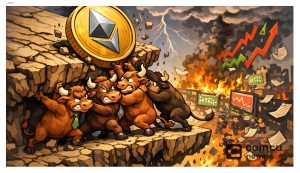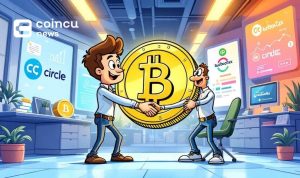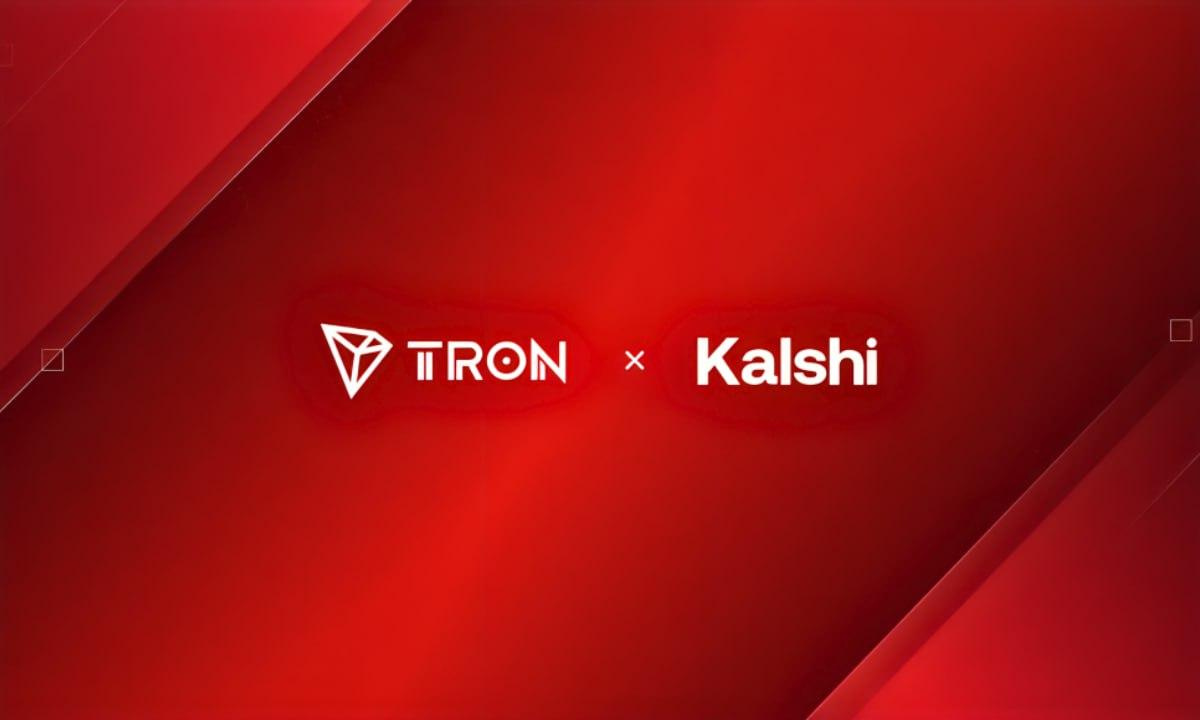Key Points:
- The NFT market has dropped significantly recently.
- However, potential factors still suggest that the NFT will return to dominance if the market turns.
Recently, there has been a significant reduction in trading volume as well as interest in the non-fungible token (NFT) market.
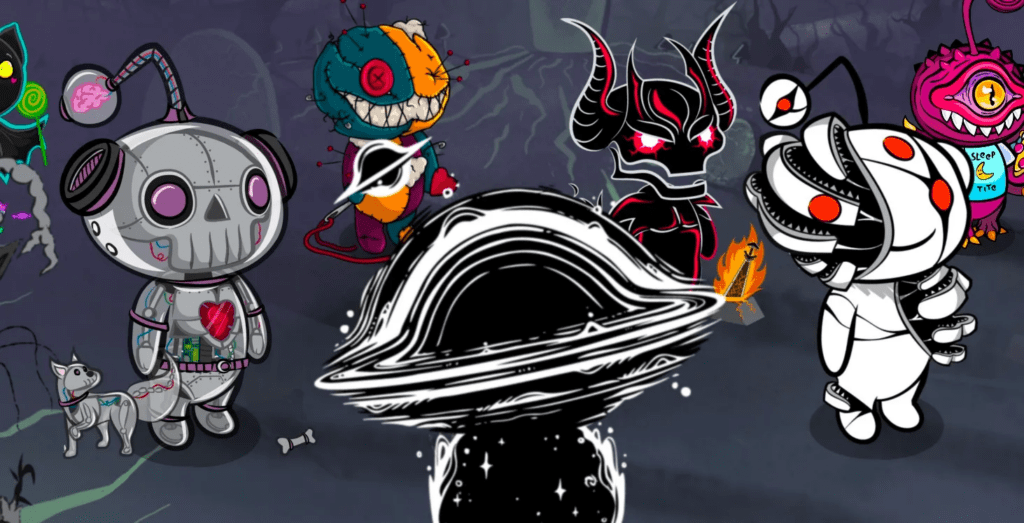
Nonetheless, as some claim, NFT will never disappear since the market cycle is normal. There must be a bear market if there is a bull market. Despite the market’s brief fall, NFTs will continue to exist. Market volatility is typical, and the crypto business has seen comparable ups and downs. Let us now get down to business and explain why another bull market is on the way.
Current NFT market scene
Two years ago, the NFT market saw exponential growth, gaining momentum among institutions, investors, and companies like never before, resulting in the majority of NFT projects reaching new all-time market highs.
Regrettably, the non-fungible token market has seen a terrible downturn in recent months, leaving most NFT projects with substantial losses. The NFT market slump began in June of last year and has since prolonged into early this year.
Nonetheless, numerous industry analysts have predicted that the broader crypto will retest the euphoria in recent weeks.
Key NFT measures, such as trading volume and revenue, were at annual lows last month. Although there hasn’t been much of a noticeable change, the analytics show that the sequence of new daily lows is coming to an end.
Just six of the top 20 NFT collections by market value grew trade volumes in the previous 30 days, according to data from blockchain analytics company IntoTheBlock. The remaining collections were significantly reduced, ranging from 20% to 99%.
The popular NFT collection CryptoPunks, which is the second-largest by market size, has seen its trade volume fall by 60.30% in the last month. Nevertheless, Azuki, Autoglyphs, and Captainz were the only collections that witnessed overall growth, with price increases of 5.29%, 1.44%, and 36.60%, respectively, supported by an increase in trade volumes.
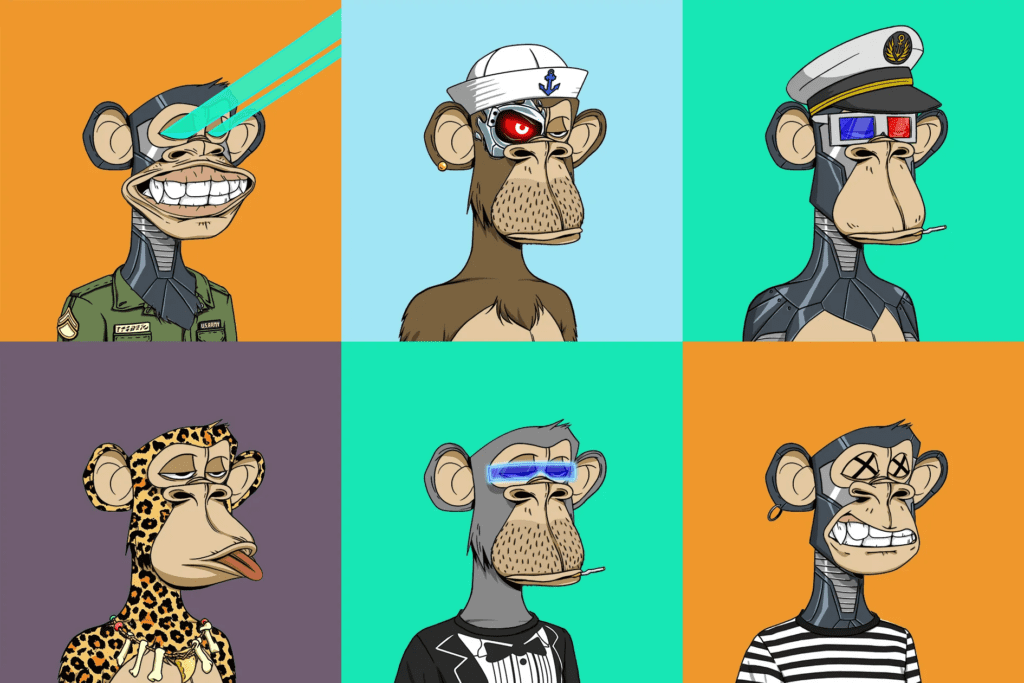
Factors driving the NFT market in the next bull run
The growth of Layer 2 networks
Remember CloneX, Moonbirds, and Doodles, the ostensibly blue-chip NFT ventures with floor costs over $80,000? They are now all priced below $5,000 on the ground level. NFT’s core is a digital collection, some of which are useful, but its primary value derives from the IP+ community.
There are more and more NFT projects now, and this number will only grow until the next bull market, increasing liquidity. Even if the total cake pan gets bigger, the “cake” that can be distributed will become less and smaller for most NFT projects.
However, it should be noted that it appears to be human nature to collect things, whether they are physical objects or digital collections, so NFT will not disappear, but the NFT market dominated by expensive projects is likely to change in the future, and mass adoption may be achieved through more Cheap NFT implementation, Reddit is a good example, and they also boldly try to promote popular applications through Layer 2, after all, paying $10 for a $50 NFT is meaningless.

There is little question that the second-tier solution will play an important role in the NFT market since L2 will lower prices and boost transaction speed, making NFT collections accessible to everyone, such as y00ts.
But, when more users pour into the NFT market, even though most people would gather lower-priced NFTs, the values of certain NFTs will rise to some level, just as various automobiles, watches, and other items do. NFT, like other collections, has a variety of pricing points.
Based on the above assumptions, the next NFT bull market cycle is expected to include certain decentralized liquidity initiatives, resulting in a more balanced and stable market, and a varied ecosystem is more favorable to content providers and NFT holders.
New participants in the NFT market
As the NFT industry develops, additional content providers and traders will join the market, driving innovation and development. In reality, this shift has already started, and the ongoing change is beneficial.
Projects with actual value and long-term potential will thrive in the next bull market, while short-term hype will not provide long-term returns, so which NFT projects should you pay attention to and keep for a long time? A solid NFT project typically consists of three components: strong foundations, an active project creator, and an engaged community.
Hard times will highlight surviving projects
The genuine worth of NFT is found in its creativity, execution, creation of unique experiences, and prioritization of the community through tough times. Having a Web2 audience is no longer important since fewer and fewer individuals are ready to spend $10,000 for a JPG.
In this instance, future initiatives that appeal to both Web2 and Web3 audiences have the potential to ignite the next NFT bull market by increasing exposure, and the subsequent growth will revolutionize the NFT sector as these two worlds merge.
More importantly, new NFT projects in the next cycle will benefit from previous projects’ lessons learned, resulting in better and more innovative initiatives, and this positive cycle of improvement will drive the NFT market to continue to develop, even attract more Web2 giants to enter the market.
NFT also has many aspects of long-term value
With the further popularization and implementation of NFT technology, it will be further validated and pushed. Don’t forget that the nature of humans who want to gather will keep us interested in this new subject.
Real estate may also be tokenized, which means that a property can be divided into several portions, each with its own set of features. For example, one area may be near a lake, while another is closer to the forest. Each piece of land may be distinct, valued differently, and represented by an NFT, depending on its attributes. Real estate dealing, which is a difficult and bureaucratic process, might thus be sped up by combining pertinent information into a unique NFT that is associated with just the related section of the property.
NFTs, like stocks, may reflect ownership in a corporation; in fact, stock ownership is currently documented via ledgers that include information such as the stockholder’s name, date of issue, certificate number, and number of shares.
Since a blockchain is a distributed and secure ledger, issuing NFTs in the form of shares serves the same goal as issuing stocks. The fundamental benefit of combining NFTs with blockchain instead of a stock ledger is that smart contracts can automate ownership transfer—once an NFT share is sold, the blockchain can handle the rest.
The excitement, optimism, and FOMO surrounding NFTs will inevitably spark another bull run, pushing the market to a new level – which is why NFTs are far from dead, and we will definitely see another bull run, though certain market conditions are required, the field will continue to develop and mature, and as NFT technology advances and more people enter the market, the future of NFT market will only get brighter.
Conclusion
NFTs are the next step in the development of the very basic notion of cryptocurrencies. NFTs advance the reconfiguration of this infrastructure by allowing digital representations of assets.
Notwithstanding fluctuations in the crypto market, the NFT market will soon see the development of a new NFT market considerably richer in culture than earlier ones.
DISCLAIMER: The information on this website is provided as general market commentary and does not constitute investment advice. We encourage you to do your own research before investing.
Join us to keep track of news: https://linktr.ee/coincu
Harold
Coincu News








